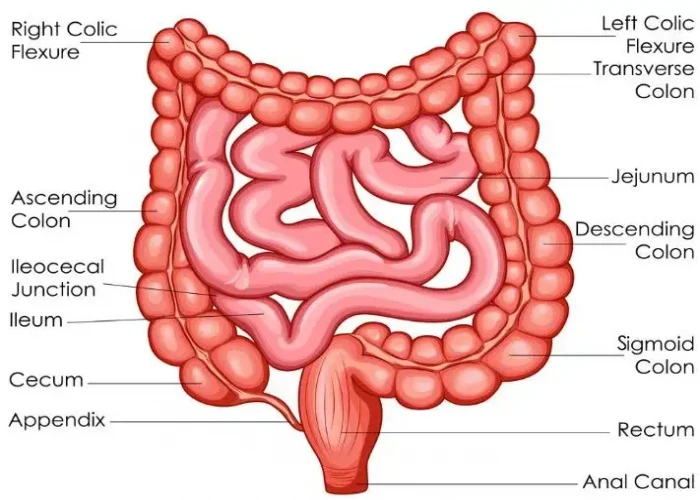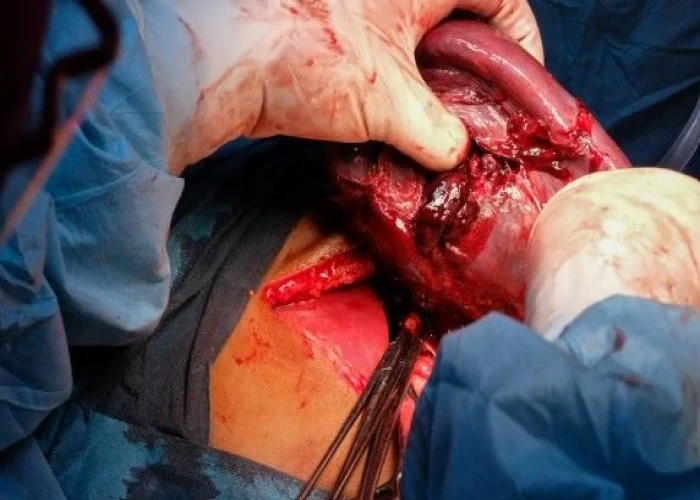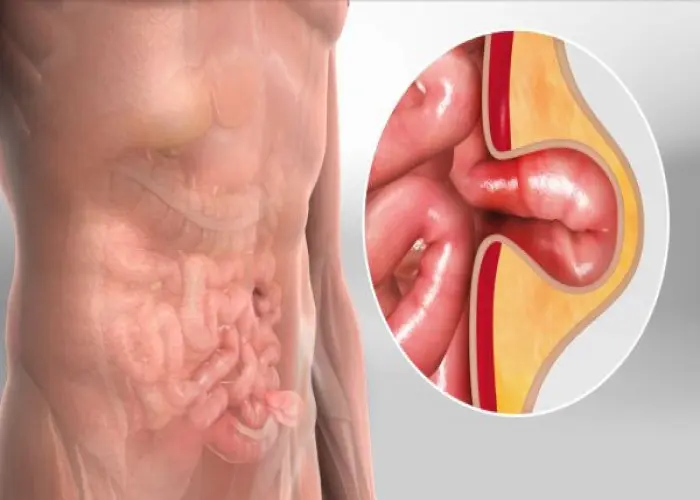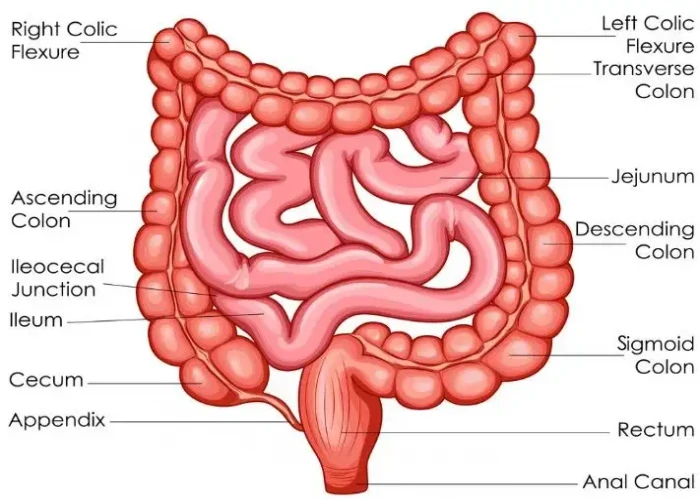 Welcome
Welcome
“May all be happy, may all be healed, may all be at peace and may no one ever suffer."
Small bowel prolapse (enterocele)

Small bowel prolapse, also known as enterocele, is a condition in which a portion of the small intestine protrudes through the vaginal or rectal wall, causing a bulge. It typically occurs in women, especially those who have had multiple vaginal deliveries, pelvic surgery, or chronic constipation. The most common symptoms of small bowel prolapse are pelvic discomfort, a feeling of fullness or pressure, and difficulty emptying the bowel or bladder. Treatment options may include pelvic floor exercises, dietary changes, medications, or surgery, depending on the severity of the prolapse and associated symptoms.
Research Papers
Disease Signs and Symptoms
- Pelvic pain
- Sensation of pelvic pressure
- Painful sexual intercourse (dyspareunia)
- A pulling sensation in the pelvis that eases when you lie down
Disease Causes
Small bowel prolapse (enterocele)
Increased pressure on the pelvic floor is the main reason for any form of pelvic organ prolapse. Conditions and activities that can cause or contribute to small bowel prolapse or other types of prolapse include:
- Pregnancy and childbirth
- Chronic constipation or straining with bowel movements
- Chronic cough or bronchitis
- Repeated heavy lifting
- Being overweight or obese
Pregnancy and childbirth
Pregnancy and childbirth are the most common causes of pelvic organ prolapse. The muscles, ligaments and fascia that hold and support your vagina stretch and weaken during pregnancy, labor and delivery.
Not everyone who has had a baby develops pelvic organ prolapse. Some women have very strong supporting muscles, ligaments and fascia in the pelvis and never have a problem. It's also possible for a woman who's never had a baby to develop pelvic organ prolapse.
Disease Prevents
Small bowel prolapse (enterocele)
You may be able to lower your chances of small bowel prolapse with these strategies:
- Maintain a healthy weight. If you're overweight, losing some weight can decrease the pressure inside your abdomen.
- Prevent constipation. Eat high-fiber foods, drink plenty of fluids and exercise regularly to help prevent having to strain during bowel movements.
- Treat a chronic cough. Constant coughing increases abdominal pressure. See your doctor to ask about treatment if you have an ongoing (chronic) cough.
- Quit smoking. Smoking contributes to chronic coughing.
- Avoid heavy lifting. Lifting heavy objects increases abdominal pressure.
Disease Treatments
Small bowel prolapse typically doesn't need treatment if the symptoms don't trouble you. Surgery may be effective if you have advanced prolapse with bothersome symptoms. Nonsurgical approaches are available if you wish to avoid surgery, if surgery would be too risky or if you want to become pregnant in the future.
Treatment options for small bowel prolapse include:
- Observation. If your prolapse causes few or no obvious symptoms, you don't need treatment. Simple self-care measures, such as performing exercises called Kegel exercises to strengthen your pelvic muscles, may provide symptom relief. Avoiding heavy lifting and constipation may reduce the likelihood of worsening your prolapse.
- Pessary. A silicone, plastic or rubber device inserted into your vagina supports the bulging tissue. Pessaries come in a variety of styles and sizes. Finding the right one involves some trial and error. Your doctor measures and fits you for the device, and you learn how to insert, remove and clean it.
- Surgery. A surgeon can perform surgery to repair the prolapse through the vagina or abdomen, with or without robotic assistance. During the procedure, your surgeon moves the prolapsed small bowel back into place and tightens the connective tissue of your pelvic floor. Sometimes, small portions of synthetic mesh may be used to help support weakened tissues.
- A small bowel prolapse usually doesn't recur. However, further injury to the pelvic floor can happen with increased pelvic pressure, for instance with constipation, coughing, obesity or heavy lifting.
Disease Diagnoses
Disease Allopathic Generics
Disease Ayurvedic Generics
Disease Homeopathic Generics
Disease yoga
Small bowel prolapse (enterocele) and Learn More about Diseases

Ruptured spleen

Dengue fever

Cutaneous T-cell lymphoma

Vitamin deficiency anemia

MRSA infection

Thyroid cancer

Hernia

Pericarditis
Small bowel prolapse, enterocele, ছোট অন্ত্র প্রলাপস, ইনটারসেল
To be happy, beautiful, healthy, wealthy, hale and long-lived stay with DM3S.
